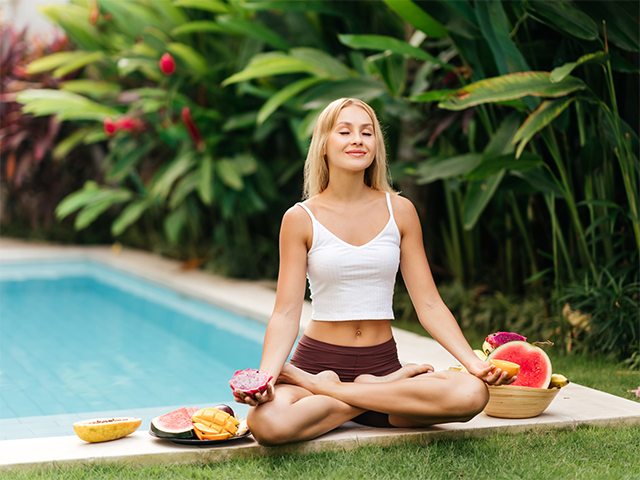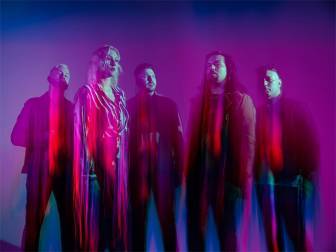Soulful Bali: Where Culture, Spirit and Self-Care Intertwine

Bali is often called the "Island of the Gods," but that nickname barely captures how deeply faith and ritual shape daily life here. The province is one of the only places in Indonesia where Hinduism is the majority faith: recent figures put Bali at roughly 86% Hindu, with Balinese Hinduism blending ancestor veneration, village customs, and temple cycles that keep the island's soul humming.
At the heart of the Balinese culture is Tri Hita Karana, a philosophy focused on achieving harmony and well-being by balancing three key relationships: Parahyangan (harmony with God or the spiritual realm), Pawongan (harmony with people), and Palemahan (harmony with nature or the environment). A daily example of the Palemahan principle lies within the island's subak irrigation networks that feed water and nutrients back into the emerald rice terraces.
Bali soul, you can truly feel
Bali's spiritual calendar is rich in rituals, and tourists are often invited to observe or participate in them. Purnama, the full-moon night, is especially powerful as temples glow, offerings multiply, and families arrive in white and yellow dress to pray for balance and blessing with fragrant canang offerings under the moon's silver light.
Celebrating Balinese culture is important to both locals and island visitors, and is a key element of the island's evening celebrations. The Kecak and Fire Dance at Uluwatu unfolds on a cliff-top amphitheatre as the sun sinks into the Indian Ocean. This is accompanied by an impressive chorus, retelling the story of the Ramayana (Hindu God) set against one of Bali's most dramatic temples.
Temples and shrines that anchor the island
Bali's great temples are not museums; they are active sanctuaries used for prayer and steeped in rich history and symbolism.
- Pura Besakih, the "Mother Temple," spreads across Mount Agung's western slopes, a large complex central to Balinese Hindu life.
- Tirta Empul, near Ubud, is famed for its holy spring where worshippers perform melukat (purification) in a sequence of stone spouts.
- On the coast, Tanah Lot sits on a sea-washed rock, iconic at sunset and revered as a guardian of the sea.
It's worth noting that tourists are expected to dress modestly with a sarong and sash, which are often provided at the entrance of temples and other cultural attractions. Always follow local guidance as these sacred spaces are the first priority, before their use as photo backdrops.
Fresh, soulful food
Bali's wellness culture is mirrored through its delicious fresh produce and cuisine loved by the world. Traditional jamu is a turmeric-ginger herbal tonic found in many warungs (small family-run businesses) and wellness cafés, a trend Ubud's scene has long championed.
Alchemy was Bali's first 100% raw, organic, vegan café, opened in 2011, and Glow at the COMO Shambhala Estate serves the resort's nutrition-driven cuisine, such as whole foods, juices and enzyme-rich dishes. Expect market produce, fermented notes, and bright tropical fruit, all designed to energise the body and mind rather than weigh you down.
Where Aussies go to unwind in Bali: 8 standout wellness and spa stays
Australians are Bali's largest visitor market, with around 25% of international arrivals during 2024 alone. Many of these travellers go to Bali specifically to rest and unwind. Below are ten well-loved resorts and areas that consistently earn praise from respected travel publishers and industry awards.
COMO Shambhala Estate in Ubud is frequently cited as one of the world's top destination spas. The jungle-clad sanctuary pairs tailored programs (from Ayurveda to stress management) with expert-led movement and a nutrition-driven restaurant, and remains a long-time favourite among wellness travellers from Australia for those essential 'resets'.
REVĪVŌ Wellness Resort in Nusa Dua was named Indonesia's Best Wellness Retreat 2024 at the World Spa Awards. It blends clinical-style diagnostics with yoga, meditation and clean cuisine in a serene, low-rise estate on the quiet Bukit peninsula.
Fivelements Retreat in Ubud is an eco-icon on the Ayung River known for sacred arts, plant-based cuisine and healing rituals rooted in Balinese tradition.
Four Seasons Resort Bali at Sayan in Ubud offers a cocoon of contemporary design in a river valley, with chakra ceremonies, rice-field walks and world-renowned spa treatments.
Mandapa, a Ritz-Carlton Reserve in Ubud, boasts riverfront villas, holistic treatments and private wellness itineraries, placing Mandapa among Bali's most coveted sanctuaries, known for its service and spa credentials.
Six Senses Uluwatu is a place where wellness meets the stunning cliff-edge offering spa program woven with specialised breathwork, biohacking tools and signature Six Senses sleep and longevity pillars.
AYANA Estate & AYANA Spa, in Jimbaran, is a sprawling, integrated resort with famous thalassotherapy pools and Thermes Marins-inspired treatments, recently hyped up by none other than Oprah Winfrey's Daily O-wards.
Buahan, a Banyan Tree Escape, located north of Ubud, is an adults-only resort with a "no walls, and no doors" concept that Vogue and Australian media have praised for its soulful immersion with nature and slow, sensory focus of wellbeing. Toja Spa, another section of Banyan Tree Escape, leans into fresh local botanicals and sensual river rituals.
Why these eight spots for Aussies? Beyond the quality and luxury of the programs, flight access and value for money are significant drivers, showing a consistent demand for year-round wellness holidays.
Balancing reverence and rejuvenation
Bali's magic lies in the way the sacred and the everyday flow together. You can move from a dawn melukat (purification ceremony) at Tirta Empul to a plant-based brunch, hike past subak-fed paddies in the afternoon, and close the day with kecak under a rose-gold sky at Uluwatu. Each of those experiences is rooted in the same ethos, and in some ways, similar to Australia's Indigenous Community with strong connections to place, people, and spirit.
Whether your goal is spiritual insight, a blissful spa or a whole lifestyle reboot, "Soulful Bali" isn't a marketing line but rather a daily reality. Tourists are encouraged to come open-hearted, move gently, and you'll soon understand why this island keeps enticing Australians to return.
Image credit istock /Margaryta Basarab
Have You Seen This?
MORE










